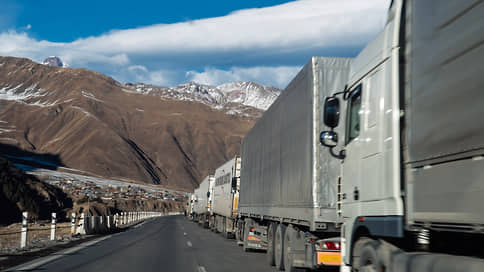Turkey doubles in transit – Newspaper Kommersant No. 47 (7492) dated 03/21/2023
[ad_1]

Turkey partially resumed the transit of sanctioned goods to Russia. However, problems persist. So, the scheme does not work for products from the USA and Canada. Some TNVED codes cannot be issued regardless of the country of origin. Market participants believe that in the end, if transit is restored, then with restrictions. First of all, according to the new EU requirements, there will be difficulties with the transit of dual-use goods.
“Since Friday, agents in Turkey have been reporting that the transit clearance system has started working,” Yulia Shlenskaya, president of the KBT customs and logistics broker, told Kommersant. “Although some Turks continue to speculate on this topic, saying that everything is complicated and very individual, respectively, the price higher. We re-exported our cargoes on Friday.”
“Initially, we did not observe delays in our cargoes, but we are aware of technical problems with some other buyers and forwarders from Russia,” they say in the F + tech-Marvel group. “As far as we know, most of the problems have been eliminated and the goods, as export, with which there were no problems at all, and transit ones are sent in the normal mode. Alexey Chernyshev, commercial director of AKFA, confirmed that “they seem to have started to clear the goods since Friday.” But, according to him, this does not apply to all TNVED codes.
According to Georgiy Vlastopoulo, CEO of Optimalog, on Monday the companies issued transit orders both at the airport and at truck terminals, but only for goods produced in the EU. For cargoes released in the United States, when the country of origin “America” is indicated in the declaration, he explains, clearance with the indication of “Russia” as the country of destination is blocked: “This problem exists, we asked Turkish brokers. With the indication of another country, you can leave Turkey.
Russian logisticians fear the introduction of permanent restrictions on certain groups of goods. Reuters on Monday reported, citing the head of the Istanbul Ferrous and Non-Ferrous Metals Exporters Association, Cetin Tejdelioglu, that Turkey had distributed to companies a list of sanctioned goods banned from transit to Russia since March 1. “Any goods from the list are blocked for deliveries to Russia, regardless of the country of origin,” he specified.
This may be the first sign of Turkey’s willingness to meet the EU and restrict the transit of dual-use goods, even if other problems are resolved.
The tenth package of EU sanctions on February 25 banned the transit of dual-use goods and technologies through Russia. Thus, the scheme of indirect re-export, which allows goods to be imported into the Russian Federation through the interruption of transit, is being suppressed.
So far, according to Georgy Vlastopulo, dual-use goods as such are not blocked in Turkey, they are not released from the EU for transit through the territory of the Russian Federation and Belarus. The European customs simply does not process transit to these countries, the expert explains, the goods have to be sent bypassing.
Aleksey Chernyshev, however, claims that the restriction has also begun to operate in Turkey: in particular, the country’s airport services have been refusing to accept cargoes of 84 and 85 TNVED groups (“Nuclear reactors, boilers, equipment and mechanical devices”, “Electrical machines and equipment”).
According to two Kommersant sources, European sanctions will come into force on March 27. “According to information from our partners in Lithuania, from March 27, a complete ban on the transit of goods of groups 84, 85 and 90 through the Russian Federation and Belarus will be in effect,” says Yulia Shlenskaya. “Our cargo passed the border over the weekend and today it has already arrived at the temporary storage warehouse . Starting Monday, we are guiding customers to physically travel through Turkey.” Kommersant’s interlocutor in the industry also confirms that dual-use cargo in transit “began to slow down.”
Julia Sula, head of partner network development at VIG Trans Groupage Cargo Transportation Department, however, clarifies that transit of dual-use cargo through the Russian Federation and Belarus is possible, “you just need to prove documentarily that the cargo is not dual-use in reality, provide all the documents requested by the competent authority of the country of exit from the EU.
According to Giorgi Vlastopulo, Turkey is unlikely to return to the previous scheme of free transit. He sees two most likely scenarios for the development of events. The first is that problems with transit will be resolved, but with restrictions on dual-use goods or goods made in the USA, Canada, Japan, Taiwan (so far there are problems only with “America”), the second is that Turkey will finally close transit.
[ad_2]
Source link





